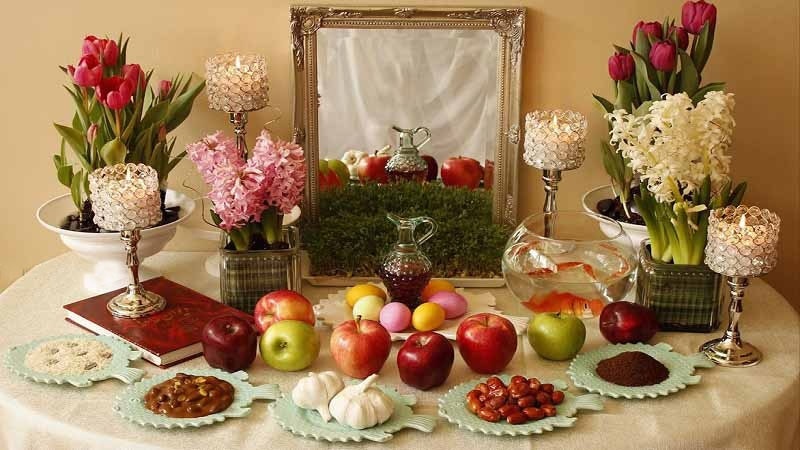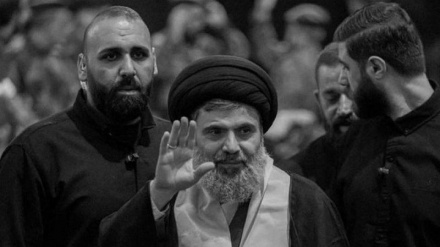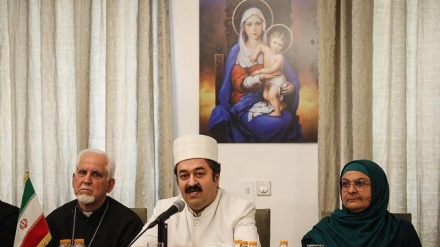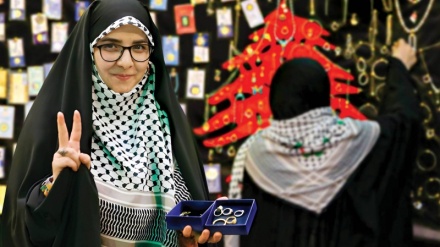Let us Welcome Spring
Nowruz is on the corner. The breaths of this year are numbered and it is going to be replaced with the new one. Nowruz brings freshness and greenery. Everywhere smells spring and vividness. Every year in the last days of the Iranian month of Esfand, there is an excitement and bustle among people all over Iran. Even the Iranians, who live thousands of kilometers abroad, get prepared to meet with spring.
Every year, the coming of Nowruz is a good pretext for Iranians to clean and decorate their houses and cleanse their hearts and souls from pollution. The custom of cleaning houses is called “Khunetekuni”, which means dusting the house from dirt and beautifying it. A few weeks before Nowruz, people are active in cleaning houses, shops and offices. Even the municipalities begin cleaning and beautifying cities and towns by cleaning streets, trimming trees and planting flowers and shrubbery at parks and boulevards. Cleaning of houses in the waning days of the year is a symbol of expurgating of hearts from uncleanness of sins and vices. People clean their houses and cities to welcome spring and the relatives and friends who come as guests. Thus, they should change internally via throwing away vices and evil characteristics such as spite, jealousy, arrogance, selfishness, stinginess, cowardliness, laziness, uncooperativeness, and so on.
As the new Iranian year approaches, bazaars, malls and shops become very busy with people who have come to buy new clothes, pastries, nuts, fruits and different things.
Wearing new clothes is an ancient Iranian custom which has been adopted from the nature. As people wear new clothes they make their hearts the center of kindness and affection.
As it was said earlier, they buy nuts and fruits. The nuts include pistachio, almond, hazelnut, walnut and so on. Raisin, dried mulberry, prunes, etc. can also be seen with these items.
Planting of green sprouts is another custom among Iranians. With this, they show that they like to bring part of the nature inside home. Thus, they sow the seeds of wheat or lentil and other grains in small plates or earthenware vases. This is called Sabzeh which is one of the constituents of Haftseen tablecloth. As you may have heard, Haftseen is a spread (tablecloth) which contains 7 items starting with Farsi letter “seen” corresponding with letter “s” in English.
Preparing Nowruz pastries is also common among some of the regions in Iran. In the last days of Esfand, women in many villages embark on baking sweet breads and cookies for the guests of Nowruz. Iranian families usually prepare special dinner on the eve of Nowruz and family members sit together to have dinner. This food usually comprises rice cooked with vegetable in it and fish which is served on it. The families who have just betrothed their son send gifts to his fiancée. These include clothes, gold, fabric, pastry, nuts and so on. The family of the newly-betrothed girl, also, sends dinner, fruits, gift, clothes and nuts to her fiancé.
Until recent decades, Iranians used to send postal cards to relatives and friends during Nowruz but this has been almost given up due to the spread of electronic technology, internet and mobile phones. Hence, like other people in the world, Iranians send SMS, e-mail and MMS to express their love and affection to their dear and near ones.
Preparation of new clothes and necessities of the poor and the needy is also very common among Iranians. Thus, charity institutions, especially those in the mosques, make efforts to meet the demands of poor people particularly the orphans and those families which do not have a bread-winner.
The most spiritual custom is the custom of going to graveyards, especially the martyrs. Iranians pay a visit to the tombs of the deceased, recite Qur’an and pray for them. This is often done on the last Thursday of the year. Many Iranians try to be present at the shrine of Imam Reza in Mashhad or the shrine of Lady Ma’suma in Qom or other Imamzadehs (descendents of the Prophet). This way they renew their allegiance with the Ahl al-Bayt (progeny of the Prophet of Islam) and gain new energy and spirit for life.
RM/MG



